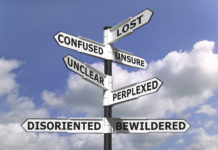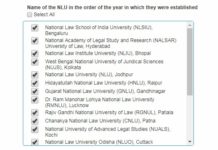This article has been submitted by Shweta Venkatesan for the CLATGyan Blog Post Writing Competition. If you think this article is a good read, ‘Like’ this article on Facebook (the button is at the bottom of this piece) or post a comment using the ‘comments’ section below.
***
The election fever has gripped the nation, and how.
The media is clearly making hay while the sun shines. Newspapers publish editorials which mostly comprise political analysts propounding their views on the performance of a particular party in a particular constituency and then analysing particular circumstances that spell victory or defeat. This qualitative information is then further supplemented with mind numbing statistics to serve as proof of the veracity of the analyst’s interpretation.
On the other end of the spectrum, sociologists, economists, political pundits and sometimes politicians themselves publish articles that alternately eulogise or condemn the policies of one or the other party.
However, this information lacks influence in certain spheres because of two major reasons. One, quite obviously, is that this information reaches only those who can read, and its importance is understood only by those fortunate enough to call themselves literate. Even if it does manage to seep in through newspapers and broadcast media in vernacular languages, a large section of the population is also probably unable to scrutinize this information and form an opinion because they lack the ability to understand what is presented- and sometimes for no fault of theirs.
Ironically enough, the second reason is that sometimes this information may appear too straightforward. There is little scope of assuming beyond what is given, and few would actually try to do so even if there was. Quoting Ranbir Kapoor from Yeh Jawaani Hai Deewani, it’s basically ‘daal chaawal’ with no tadka or masala. There is no ‘read-between-the-lines’ scenario. With due respect to all the analysts’ efforts, a certain section of the Indian population, including the youth, the middle aged and senior citizens, are not really interested in knowing what cannot be disputed anyway. This section also refuses to be swayed by statistics- either because they’re simply too confusing to sift through, or because of scepticism that has its roots in the knowledge of how numbers can, and have, been fudged in the past.
This section of the population posits a real problem for politicians. After all, how do you sway an electorate that has little or no knowledge of the party’s past achievements, and doesn’t appear inclined to imbibe some either?
The answer is quite simple. These parties resort to tactics meant to capture the bored electorate’s attention. These gimmicks aren’t merely performed to indirectly target an opposition party- they’re meant to target the bored electorate, the uninformed electorate, and the gullible electorate. While methodologies differ across parties, the core idea stays the same. It’s just that some MP’s pepper their speeches with insidious remarks, while some target the Parliament itself.
However, this doesn’t sit with the sensible electorate, and I guess we’d like to believe that you and I either are, or will be, a part of this group. Unfortunately for politicians, this tactic distances the intelligentsia and the informed masses, becoming more of an Achilles heel rather than a shot in the arm. And so we find apologies after sentiments have been hurt, statements apparently ‘misquoted’ or ‘misinterpreted’ by the media and the people, and the ever-ready barbs and retorts at other parties who have done the same, or worse. These politicians do not accept blame, they displace it.
This election season, a lot of veteran legislators and politicians have complained of the standard of discourse stooping to abysmal levels. While there is a need to ensure politicians don’t take the system for granted, it’s about time we pointed fingers at ourselves. A democracy is of the people and for the people, but it’s also by the people. It’s about time we decided to delete the adjectives and judge by facts. As responsible Indians, we must not let prejudice colour our views. We cannot claim to be a mature democracy if we’re beguiled by (as Priyanka Gandhi put it) neech raajneeti. And I don’t believe education, or the lack of it alone has led to this precarious state of affairs. Sometimes, it’s just that we are shackled by world views we hold, and do not have the courage to let another view take some space.
Though this election season has already ended, there will be many more national elections in the future. Perhaps, if we for once let actions speak louder than words, we’d live up to the standards of the electorate our forefathers envisioned decades ago. We’d return to a state where respect and not rebuff outlines our political system.
Let us break out of the shackles. Let us, for once, assume responsibility if our politicians cannot, taking all sections of society together. Let us break down the barriers we’ve almost come to accept. Let us help contribute to make true the aspirations and dreams of the framers of our Constitution, and hope that someday, our efforts will help the present and future generations live up to the ideal they called India.
***
Shweta Venkatesan is a law school aspirant from Mumbai, “The City of Dreams”. True to the spirit of her city, she believes that the key to life is to keep dreaming. Reading books (actual literature, not Twilight/Vampire Diaries/other vampire romances) keeps her alive, and writing is her escape from reality.















Shweta 😀 well written! but what happened to lets go tribal ?
haha thanks Kush 😀 and I told you my preference that day itself 😛